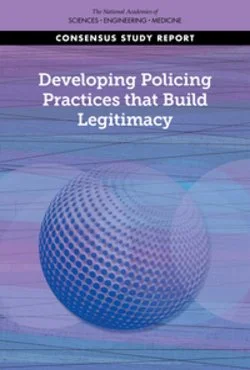Developing Policing Practices that Build Legitimacy
By National Academies of Sciences, Engineering, and Medicine.
Scholars, policymakers, and the public view police legitimacy and community trust in the police alike as essential components of an effective police organization. An extensive network of international and regional organizations, bilateral donors, international financial institutions, and civil society organizations aims to work with governments to improve policing practices and enhance police legitimacy. As a part of that network, the U.S. Department of State, through its Bureau of International Narcotics and Law Enforcement Affairs (INL), provides foreign assistance to and supports capacity building for criminal justice systems and police organizations in approximately 90 countries. Like many donors, it strives to direct its resources to the most effective approaches to achieve its mission. At the request of INL, the Committee on Law and Justice of the National Academies of Sciences, Engineering, and Medicine convened an ad hoc committee to review, assess, and reach consensus on existing evidence on policing institutions, police practices and capacities, and police legitimacy in the international context. The committee produced five reports, addressing questions of interest to INL and the State Department. Developing Policing Practices that Build Legitimacy, the fourth in this series, responds to the question: What policing practices build community trust and legitimacy in countries with low-to-moderate criminal justice sector capacity? This report focuses on the concept of legitimacy and ways of building legitimacy to foster this kind of trust and expectations.
Washington, DC: National Academies Press, 2022. 66p.


